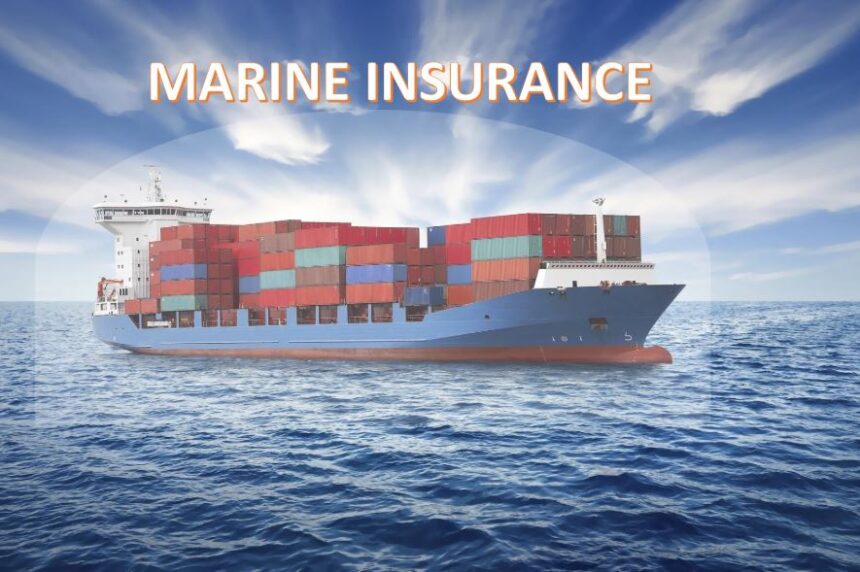Marine insurance has always been a solid foundation for safeguarding business interests in the maritime trade. Indeed, with the growing increase in international trading, the importance of marine insurance in mitigating risks becomes more severe. The present article talks about the modern aspects of marine insurance, addressing some of the widely asked questions, such as what marine insurance is, and explaining documents like the bill of lading.
What is Marine Insurance?
Marine insurance protects against losses or damages to ships, cargo, terminals, and any transport by which property is transferred, acquired, or held between points of origin and final destination. Marine insurance provides identification and management measures concerning the risk of marine trading activities. It covers damage to a physical ocean-going vessel and any goods carried on board during the transit. It also covers businesses against possible financial losses due to events otherwise of unforeseen nature occurring at sea.
Present-day marine insurance is a testament to the improved tradition of insurance. The old covers have changed over the years to accommodate the new risks that have come up due to technological advancement and globalization. Therefore, today’s marine policies are more expansive since they address the multifarious nature of international trade and the risks involved.
Modern Challenges in Marine Insurance
Challenges in today’s marine industry lie in piracy, natural disasters, geopolitics, and, more recently, digital piracy and cyber threats. These have introduced risks into sea voyages that were not part of the early weave of peril. Thus, they call for marine insurance to be more versatile in design and boost the yield of its claims expulsion.
- Piracy and Armed Robbery: Incidents still occur despite international efforts to combat piracy, especially in high-risk areas such as the Gulf of Aden and West African waters. Marine insurance coverage will include losses due to piracy, including ransom payment and recovery costs.
- Natural Disasters: Hurricanes, typhoons, and other such natural calamities are significant threats in some respects to maritime operations. Hence, most modern marine insurance policies incorporate coverage against damages caused by natural disasters.
- Geopolitical Tensions: These patches of political turbulence can cause disasters in shipping and accumulate loss. Such risks are covered by marine insurance so that businesses can carry out their operations with less financial overhang.
- Cyber Threats: The increasing reliance on digital technology makes the maritime industry more vulnerable to cyber-attacks ‘today.’ Modern marine insurance policies also have provisions for covering such exposures concerning data and other threats, protecting entities from claim-related breaches.
The Role of the Bill of Lading
What is bill of lading? A bill of lading is one of the key documents used in shipping. It serves three distinct purposes: a receipt for the carried goods, a document evidencing the title thereof, and within the carriage of goods contract. For this reason, comprehension of the bill of lading is essential for maritime trade since it acts legally to safeguard and assist in transaction activities.
Very crucial fields on the bill of lading will be filled in with all the requisite data, such as the name of the type and quantity of goods, destination, and shipping terms. It also proves that the goods had been received in good condition and must be delivered to the consignee as specified. The bill of lading also facilitates an ownership transfer and makes it easier to conduct international trade.
Marine Insurance Coverage
The coverages offered by modern hull insurance policies provide a great variety in the increasing demand for features and conditions to cover a business’s needs in maritime trade. They are:
- Hull and Machinery Insurance: This covers physical damage caused to the vessel, including the hull, the machinery, and the equipment. Such insurance is mandatory for ship owners to cover their investment in the ship.
- Cargo Insurance: Protects you from loss or damage to your goods during transit. In addition to that coverage, cargo insurance can be tailored to meet specific risks such as theft, fire, or natural disaster so that businesses can be adequately covered.
- Freight Insurance: Covers loss on freight revenue due to damage incurred to cargo or even loss of it. Such insurance is essential for carriers and shipping companies as it acts as recompense for the financial losses suffered due to interruptions in their operations.
- Liability Insurance: Protects from legal liabilities arising from maritime operations and includes damages for pollution, collisions, and injuries to third persons. Liability insurance is essential for businesses as it measures their financial exposure due to legal claims.
The Importance of Risk Management
Risk Management in maritime business activities minimizes the losses in tangible dimensions. Risk assessment and identifying the proper marine insurance coverage should be more profound for organizations. Conduct reviews and updates on insurance regularly to keep the businesses protected against emerging risks.
Risk management includes finding probable risks, estimating impacts, and providing mitigation means. For businesses engaged in trade by sea, such may consist of investing in advanced security systems, carrying out regular maintenance of ships and equipment, and monitoring the developments of geopolitics that may affect shipping routes.
How DripCapital Can Help?
Drip Capital provides financial facilities tailored to the businesses’ specific maritime trade requirements. For example, the Trade Finance product includes the Working Capital Solutions expressly offered to facilitate business continuity in meeting the regular cash flows and to hedge financial risk. By employing the expertise of DripCapital, such businesses may assure themselves of the resources required, seeking to step into uneventful conditions while continuing to ensure smooth operations in times of unexpected changes.
The DripCapital trade finance product provides funding access to businesses quickly and efficiently without securing collateral. It is specifically beneficial for small and medium enterprises (SMEs) that find it hard to procure loans from banks. DripCapital offers financial assistance for better management of cash flows, as well as easy access and flexibility to navigate through international trade.
Conclusion
This article intends to make people thoroughly understand what modern marine insurance is and what risk management is all about- the roles played by some critical documents, mainly focused on the bill of lading. This would help businesses manage their nautical trade complications because of Drip Capital.
FAQs
-
What is marine insurance?
Marine insurance covers vessels, commodities, and general averages or average losses; therefore, it concerns marine commerce in general. It makes the trade function much better and improves the risk-handling process.
-
What is a bill of lading?
As a document, a bill of lading serves three purposes: a receipt for the shipped cargo, a document of title, and a contract for carriage of goods. It provides the necessary international trade facilitation as well as legal protection.
-
What types of coverage does marine insurance offer?
Marine insurance covers hull and machinery, cargo, freight, and additional liabilities relating to maritime business requirements.
-
Why is risk management critical in marine insurance?
It can inform firms on the ones worth the risk and how to take the policy without incurring skyrocketing expenditures in financial terms. Henceforth, the policies should be amended to protect them from emerging threats sufficiently.
-
How can DripCapital assist businesses with marine insurance?
DripCapital’s Trade Finance Business Working Capital Solutions are designed specifically for companies to fund working capital in the rainy days of an economic downturn or to defray risks associated with marine trade. Hence, the firm’s flexible financing allows companies to maneuver the labyrinths one faces in international trade quickly.




